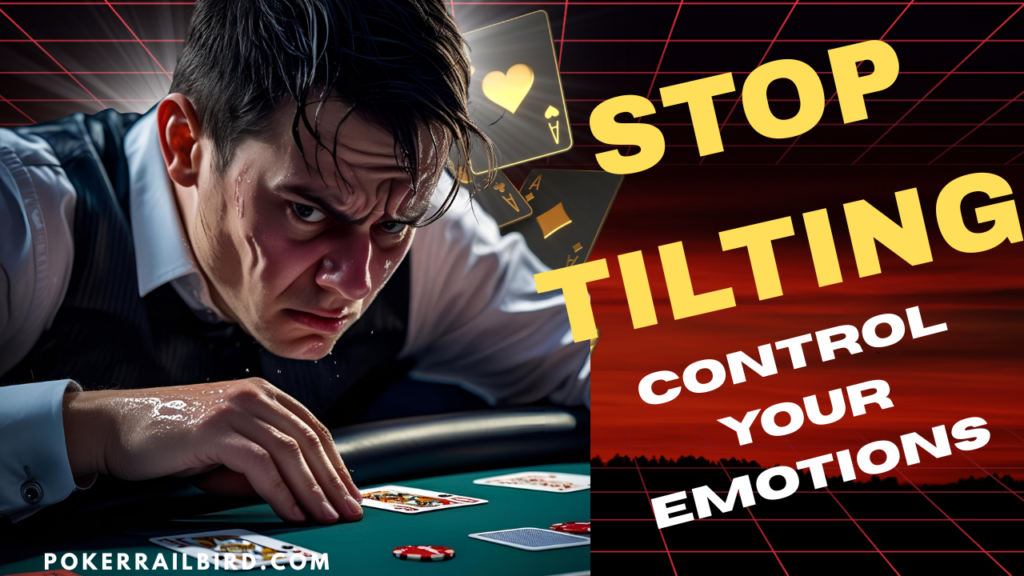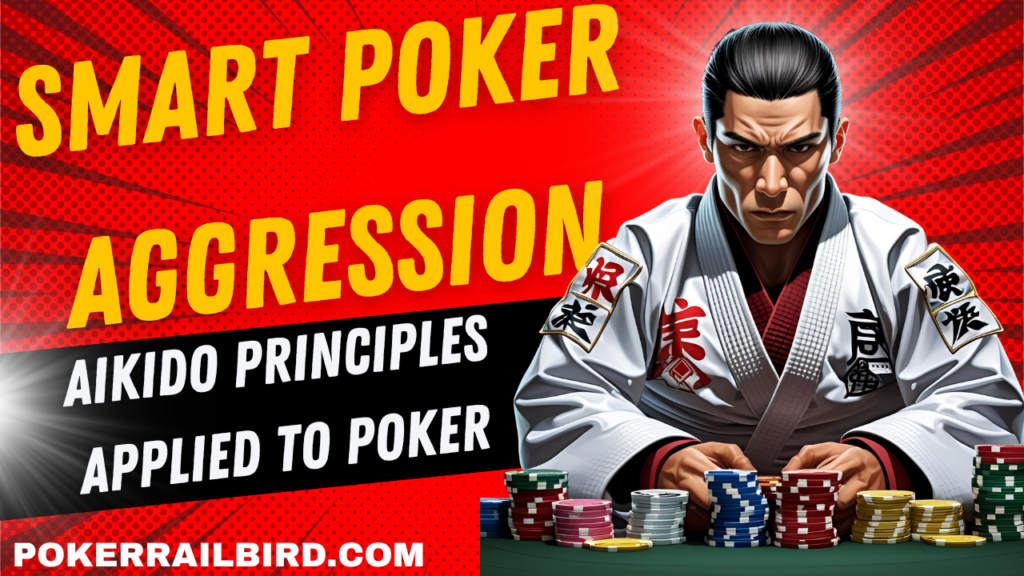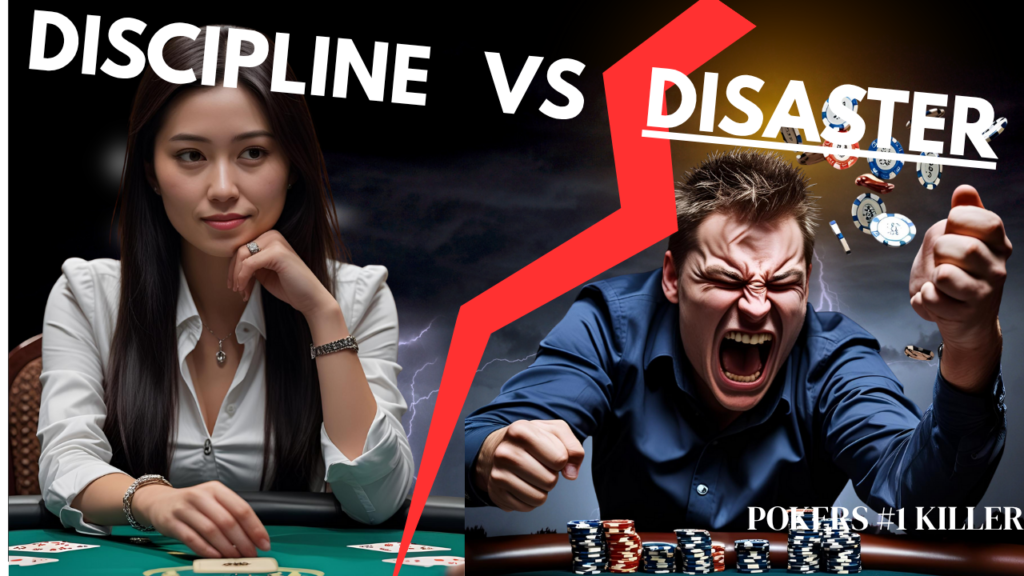THE PSYCHOLOGY OF POKER
INTEGRATING COGNITIVE, BEHAVIORAL AND EMOTIONAL INTELLIGENCE
Poker psychology plays a pivotal role in enhancing a player’s performance at the table. By delving into cognitive processes, behavioral patterns, and emotional intelligence, players can gain a competitive edge. This article explores how these psychological facets intertwine to influence decision-making and overall gameplay.
Understanding poker psychology offers numerous benefits that can significantly enhance a player’s performance, such as:
IMPROVED DECISION MAKING
ENHANCED EMOTIONAL CONTROL
ACCURATE READING OF OPPONENTS
INCREASED REESILIENCE
By comprehending cognitive processes, players can analyze situations more effectively, leading to informed choices at the table.
Emotional intelligence enables players to manage their emotions, maintaining composure during high-pressure moments and reducing the risk of going on tilt.
Knowledge of behavioral psychology aids in interpreting opponents’ actions and detecting patterns, providing a strategic advantage.
A strong psychological foundation helps players navigate the game’s inherent variances without succumbing to frustration, fostering long-term success.
Conversely, a lack of understanding of poker psychology can lead to several drawbacks:
EMOTIONAL INSTABILITY (TILT)
MISINTERPRETATION OF OPPONENTS
INCONSISTENT PERFORMANCE
Players may become easily overwhelmed by losses, leading to impulsive decisions and a higher likelihood of going on tilt.
Without insights into behavioral cues, players might misread opponents’ intentions, resulting in strategic errors.
Neglecting the psychological aspects can cause players to be swayed by short-term outcomes, disrupting their long-term strategy and consistency.
In summary, integrating psychological principles into one’s poker strategy is essential for achieving long-term success. By honing cognitive skills, understanding behavioral cues, and cultivating emotional intelligence, players can elevate their game and gain a significant edge over less perceptive opponents.
COGNITIVE PSYCHOLOGY IN POKER
Cognitive psychology delves into how individuals acquire, process, and store information. In poker, this involves interpreting data from the game and opponents to make strategic decisions.
Effective decision-making in poker requires integrating various cognitive skills. Here are a few examples.
Add Your Heading Text Here
RECOGNIZING PLAYER TENDENCIES
Grasping probabilities and odds is essential. Players calculate the likelihood of certain hands and potential outcomes to inform their choices.
Observing and remembering opponents’ behaviors allows players to predict future actions and adjust strategies accordingly.
Player Styles: Identifying whether opponents are tight-aggressive, loose-passive, etc., helps in anticipating their moves and exploiting weaknesses.
STRAGEGIC PLANNING
READING TELLS
Developing a game plan based on position, stack sizes, and game dynamics helps in making consistent decisions.
Identifying physical or verbal cues from opponents can provide additional information about their hand strength or intentions.
HAND READING SKILLS
ANALYZING BOARD TEXTURE
Estimating opponents’ possible holdings based on their actions and betting patterns refines strategic responses.
Hand Ranges and Combinatorics: Understanding hand ranges and applying combinatorial analysis enables players to narrow down opponents’ potential holdings systematically as the hand progresses.
Interpreting the community cards to determine how they interact with potential hands guides betting and bluffing decisions.
Wet vs. Dry Boards: Recognizing whether the board is coordinated (wet) or uncoordinated (dry) affects the likelihood of opponents completing draws.
ASSESSING TABLE DYNAMICS
Evaluating the overall mood and recent events at the table provides context for decision-making.
Emotional Climate: Noting if players are on tilt or displaying frustration can signal opportunities to capitalize on their unstable play.
Recent Events: Considering recent significant hands, such as bad beats, can influence current player behavior and strategy adjustments.
By integrating these components, players enhance their ability to process information swiftly and make optimal decisions under uncertainty. This holistic approach to decision-making in poker leverages cognitive psychology principles to improve performance at the table.
COGNITIVE BIAS & POKER PSYCHOLOGY
Cognitive biases are systematic errors in thinking that affect judgments and decisions. In poker, common biases include:
CONFIRMATION BIAS
AVAILABILITY HEURISTIC
Favoring information that confirms pre-existing beliefs. For example, assuming an opponent always bluffs and interpreting their actions to fit this belief, leading to potential misplays.
Overestimating the likelihood of events based on recent experiences. A player might overvalue a hand because it recently won a large pot, ignoring broader statistical realities.
Recognizing these biases is crucial to maintain objectivity and make rational decisions.
STRATEGIES TO MITIGATE BIASES
PRACTICE MINDFULNESS
CULTIVATE PATIENCE
ENGAGE IN GAME PREPARATION
Staying present helps in recognizing emotional reactions and prevents them from influencing decisions.
Waiting for optimal situations rather than forcing action leads to better outcomes. Patience allows for thoughtful analysis rather than impulsive moves.
Studying game theory, reviewing hand histories, and practicing regularly enhance cognitive skills. Preparation builds a foundation for making informed decisions under pressure.
By implementing these strategies, players can improve their cognitive functions, leading to more consistent and successful poker performance.
BEHAVIORAL PSYCHOLOGY IN POKER
Behavioral psychology examines how our actions are influenced by external stimuli, emotions, and social interactions. In poker, understanding both your own behaviors and those of your opponents can provide a strategic advantage.
RECOGNIZING & INTERPRETING OPPONENTS' BEHAVIORS - NON VERBAL CUES
SITUATIONAL CONTEXT OF TELLS
CATEGORIES OF TELLS
Situational Context of Tells: Non-verbal cues, or “tells,” are behaviors that may reveal information about a player’s hand. However, their meanings are highly context-dependent. A behavior indicating strength in one situation might signify weakness in another. Therefore, it’s crucial to observe these cues within the specific context of the hand and the individual player’s tendencies.
Waiting-for-Action Tells: Behaviors exhibited while a player awaits an opponent’s action. For example, staring at an opponent during their decision-making process.
During-Action Tells: Behaviors displayed during a player’s own action, such as the manner of betting or checking.
Post-Bet Tells: Reactions observed after a player has made a bet, like a sigh or a smile.
.
Correlation and Validation: It’s essential to correlate observed tells with known behaviors over time. Acting on a single observation without validation can lead to incorrect reads and costly mistakes.
For an in-depth exploration of non-verbal tells, consider Zachary Elwood’s book, Reading Poker Tells. This comprehensive guide delves into analyzing opponents’ physical behaviors to gain strategic insights.
VERBAL TELLS
COMPLEXITY & INFORMATION RICHNESS
CONTEXTUAL INTERPRETATION
CORRELATION WITH BEHAVIOR
Complexity and Information Richness: Verbal expressions, including spoken words, tone, and even non-verbal sounds like sighs or laughter, can inadvertently reveal a player’s mindset. Due to the complexity of verbal communication, players may unintentionally disclose information about their hand strength or intentions.
As with non-verbal cues, the meaning of verbal tells depends on the situation and the individual. A statement indicating confidence in one context might be a bluff in another. Therefore, understanding the player’s typical behavior and the specific game situation is vital.
Verbal tells should be considered alongside other behaviors and previous patterns. For instance, a player who suddenly becomes talkative after being quiet may be attempting to mislead opponents.
To further understand verbal tells, Zachary Elwood’s Verbal Poker Tells offers a detailed analysis of how players’ words can provide insights into their hands.
BETTING PATTERNS
PRE-FLOP BEHAVIOR
POST-FLOP ACTIONS
BET-TIMING
Pre-Flop Behavior: Some players may bet or raise significantly with medium-strength hands like pocket Jacks or Tens due to discomfort, aiming to discourage callers. Others might bet smaller amounts with the same hands out of caution. Recognizing these tendencies can provide insight into an opponent’s hand range.
Continuation bets are common from players who raised pre-flop. Interpreting these bets requires analysis of the player’s type, the board texture, and recent game dynamics. For example, a tight-aggressive player betting on a coordinated board may represent strength, while a loose-aggressive player might be bluffing.
The speed of a player’s actions can offer clues. Quick bets might indicate decisiveness, possibly reflecting strength or a well-planned bluff. Conversely, hesitation could suggest uncertainty or an attempt to portray weakness. However, these interpretations are player-specific and should be validated through observation.
MANAGING YOUR OWN BEHAVIOR - EMITIONAL REGULATION
UNDERSTANDING TILT
STRATEGIES FOR CONTROL
Understanding Tilt: Tilt occurs when emotions like anger or frustration disrupt logical thinking, leading to suboptimal decisions. Triggers include bad beats, consecutive losses, or conflicts with other players. Recognizing personal tilt triggers is the first step toward maintaining composure. For a detail breakdown on Tilt and how to avoid it read our full article: EMOTIONAL NTELLIGENCE & TILT
Developing emotional intelligence is crucial. Techniques such as mindfulness, deep breathing, and taking breaks can help manage emotional responses. Additionally, understanding the mathematical nature of variance in poker can provide perspective, reducing the emotional impact of short-term losses.
.
DEVELOPING A CONSISTENT TABLE IMAGE
INFLUENCING PERCEPTION
ADAPTABILITY
Your table image—the way opponents perceive your playing style—affects how they respond to your actions. A tight, conservative image might encourage opponents to fold more readily, allowing for strategic bluffs. Conversely, a loose, aggressive image might lead opponents to call more often, which can be advantageous when holding strong hands. For a detailed look at Table Image, “The Complete Guide To Table Image”.
While maintaining a consistent image is beneficial, adjusting your style to exploit opponents’ expectations can enhance your strategic advantage. For example, if you’ve established a tight image, a well-timed bluff can be more convincing.
SOCIAL DYNAMICS & INTERACTION - UNDERSTANDING PLAYER MOTIVATIONS
DIVERSE REASON FOR PLAYING
ADAPTING STRATEGIES ACCORDINGLY
Players participate in poker for various reasons, including social interaction, entertainment, competition, and financial gain. Recognizing these motivations can provide insight into their playing styles and risk tolerance. For instance, a player focused on social engagement might play more loosely, while someone aiming for profit may adopt a tighter strategy.
By identifying opponents’ primary motivations, you can tailor your approach to exploit their tendencies. Against a recreational player seeking fun, value betting with strong hands might be profitable, whereas bluffing might be more effective against a risk-averse opponent.
OBSERVATIONAL SKILLS
MINDFULNESS & PATIENCE
PRODUCTIVE DOWNTIME
Staying present and patient allows you to observe subtle cues and behaviors that others might miss. This heightened awareness can lead to better decision-making and strategic adjustments.
Utilizing time between hands to study opponents, rather than engaging in distractions like social media, enhances your understanding of the table dynamics. Noting betting patterns, emotional reactions, and interaction styles can provide valuable information for future hands.
INTEGRATING COGNITIVE, BEHAVIORAL & EMOTIONAL STRATEGIES IN POKER
Achieving success in poker requires a harmonious blend of cognitive acuity, poker psychology, behavioral insight, and emotional regulation. By integrating these dimensions, players can enhance decision-making, maintain psychological resilience, and adapt effectively to the dynamic nature of the game.
COGNITIVE STRATEGIES-INFORMATION PROCESSING & ANALYSIS
HAND READING & RANG ASSESSMENT
MATHEMATICAL PROFICIENCY
Develop the ability to deduce opponents’ possible holdings based on their actions, betting patterns, and known tendencies. This involves assigning probability-weighted ranges to opponents’ hands and updating these assessments as the hand progresses.
A solid grasp of poker mathematics, including pot odds, implied odds, and expected value calculations, is essential. This knowledge enables players to make decisions that are profitable in the long run, even amidst short-term variance.
COGNITIVE BEHAVIORAL TECHNIQUES
IDENTIFYING & CHALLENGING COGNITIVE DISTORTIONS
PRE-GAME MENTAL PREPARATION
Players often face negative thought patterns, especially after losses. Recognizing these distortions and reframing them can prevent tilt and promote a rational mindset. For instance, viewing losses as learning opportunities rather than personal failures can maintain confidence and focus.
Establish routines that prime the mind for optimal performance. Techniques such as visualization, mindfulness meditation, and setting clear session goals can enhance focus and reduce susceptibility to emotional disturbances. Engaging in deep breathing exercises before play can also promote calmness and clarity.
BEHAVIORAL STRATEGIES
AWARENESS OF PERSONAL TELLS
BEHAVIORAL FLEXIBILITY
Understanding and controlling one’s own non-verbal cues can prevent opponents from gaining insights into one’s hand strength. Practicing neutral behaviors and expressions helps in concealing involuntary reactions.
Adapting playing style based on table dynamics and opponents’ perceptions is crucial. Switching between aggressive and passive strategies, or adjusting bet sizing, can make one’s play less predictable and more challenging to counter.
OBSERVATIONAL SKILLS
Opponent Analysis: Continuously observe and interpret opponents’ behaviors, betting patterns, and emotional states. Identifying deviations from their standard play can signal potential bluffs or strong hands.
Utilizing Downtime Effectively: Use periods when not involved in a hand to study the table. Noting how players react in various situations enhances one’s ability to make informed decisions when engaged in play.
EMOTIONAL STRATEGIES
MANAGING TILT
BUILDING RESILENCE
Emotional upheavals can lead to suboptimal decisions. Implementing strategies from cognitive-behavioral therapy (CBT), such as thought-stopping techniques and reframing negative beliefs, can help maintain emotional equilibrium. Recognizing personal tilt triggers and developing coping mechanisms is essential for sustained success.
Developing mental toughness allows players to navigate the inherent uncertainties of poker. Practices like mindfulness meditation, regular physical exercise, and maintaining a balanced lifestyle contribute to emotional resilience. Engaging in activities outside of poker provides perspective and reduces burnout.
MINDFULNESS & PRESENT-MOMENT AWARENESS
Staying Present: Cultivating mindfulness helps in maintaining focus on the current hand and decision, rather than dwelling on past losses or future outcomes. This presence of mind leads to clearer thinking and better strategic choices.
Emotional Detachment: Learning to detach emotions from outcomes enables players to make decisions based on logic and strategy, rather than being swayed by temporary emotional states.
SYNTHESIS OF STRATEGIES
Developing a Holistic Approach:
Integrated Practice: Regularly engage in exercises that combine cognitive training, behavioral adjustments, and emotional regulation. For example, after a playing session, review hands not only for strategic content but also for emotional responses and behavioral patterns.
Continuous Learning: Stay informed about advancements in poker strategy and psychology. Reading relevant literature, attending workshops, and engaging with the poker community fosters growth in all three dimensions.
Application in Gameplay:
Dynamic Decision-Making: Apply cognitive skills to assess situations, use behavioral insights to interpret opponents’ actions, and employ emotional strategies to maintain composure under pressure.
Feedback Loops: Establish mechanisms for self-assessment and feedback. Keeping a poker journal to document decisions, emotional states, and outcomes can identify areas for improvement and track progress over time.
By consciously integrating cognitive, behavioral, and emotional strategies, poker players can enhance their overall performance, make more informed decisions, and cultivate a resilient mindset that withstands the game’s inherent challenges
CONCLUSION
Mastering poker extends beyond understanding the game’s mechanics; it necessitates a comprehensive grasp of cognitive, behavioral, and emotional strategies. By integrating these elements, players can enhance their decision-making processes, accurately interpret opponents’ actions, and maintain emotional equilibrium under pressure.
Cognitively, players must process information efficiently, applying mathematical principles and strategic thinking to assess situations accurately. Behaviorally, keen observation of opponents’ cues and self-awareness of one’s own tells are crucial for adapting strategies effectively. Emotionally, regulating responses to the game’s highs and lows ensures sustained focus and resilience.
Incorporating insights from experts like Zachary Elwood, particularly his works on poker tells, can further refine a player’s ability to read opponents and manage their own behavioral signals. By embracing a holistic approach that combines these cognitive, behavioral, and emotional aspects, players position themselves for greater success at the poker table.




